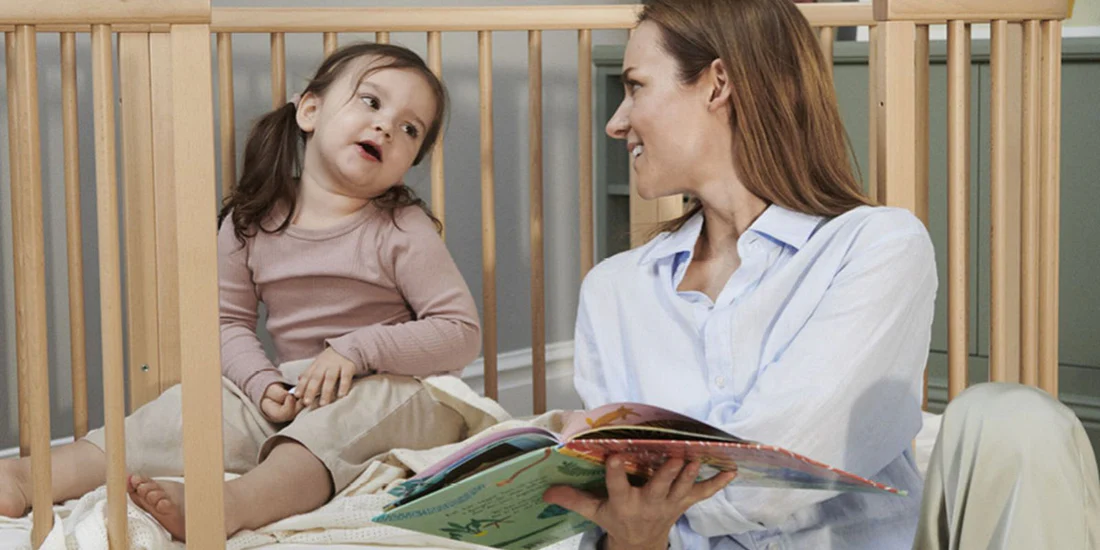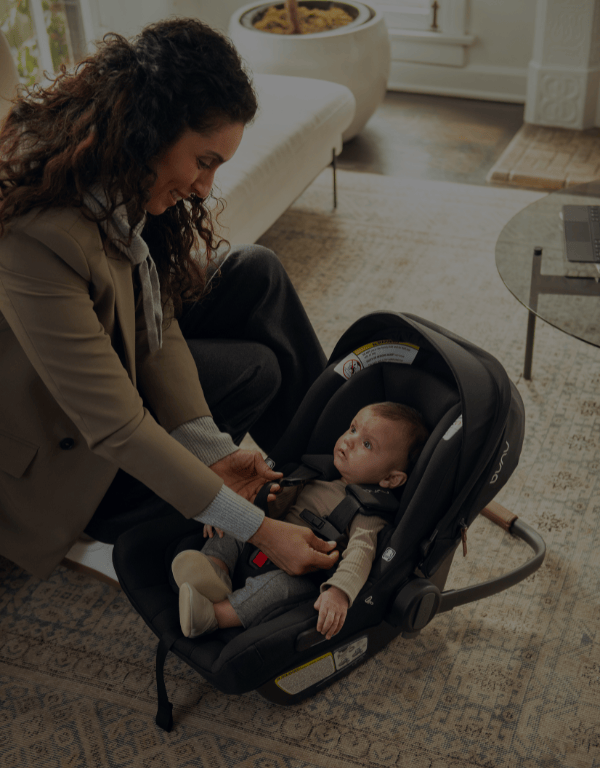
How to Create a Baby Bedtime Routine
Human beings—even brand new ones—are creatures of habit. We all have our nightly rituals: Washing our faces, brushing our teeth, putting on jammies, and maybe squeezing in some reading to relax before turning off the light and catching some Z’s. Similarly, creating a bedtime routine for your baby can help them wind down and ensure they’re getting sufficient sleep.
What Is a Bedtime Routine?
Ah, the bedtime routine. It’s a time-honored tradition, a sacred ritual that marks the end of the day and the beginning of the night. It’s a time to wind down, to relax, to let go of the stresses and pressures of the day. And it’s something that we all need, no matter our age.
But what is a bedtime routine, exactly? Well, it can take many forms, but at its core, it’s a set of actions and behaviors that we engage in before we go to bed. It’s a way of preparing our minds and bodies for sleep, of signaling to ourselves that it’s time to let go and drift off into dreamland.
For some, a bedtime routine might involve taking a warm bath or shower, reading a book, or listening to soothing music. For others, it might involve meditation or yoga, or simply taking a few moments to reflect on the day’s events and thoughts.
But regardless of the specifics, the important thing is that a bedtime routine helps us to establish a sense of structure and consistency in our lives. It’s a way of saying to ourselves, “This is what I do when it’s time to sleep,” and it can be incredibly helpful in promoting healthy sleep habits.
Why Are Bedtime Routines for Your Baby Important?
Routine is everything. And when it comes to babies, routine is absolutely essential. It’s what gives them a sense of security and predictability in a world that can often feel overwhelming and chaotic.
But it’s not just about making them feel safe and comfortable. A bedtime routine can also help regulate a baby’s sleep patterns and improve the quality of their sleep. By establishing a consistent routine, you’re helping your baby’s body and mind prepare for sleep, signaling that it’s time to wind down and rest.
And let’s not forget the importance of bonding. Bedtime routines are a wonderful opportunity for parents to spend quality time with their babies, to cuddle, sing lullabies, and read stories. It’s a chance to create memories that will last a lifetime.
But perhaps most importantly, a bedtime routine can help set the stage for healthy sleep habits later in life. By establishing a routine early on, you’re teaching your baby the importance of sleep, and helping them develop the skills and habits they’ll need to get a good night’s rest as they grow older.
Babies are born without any sense of time (you may remember the 2am partying while in your womb). A bedtime routine reinforces your baby’s circadian rhythms, a set of biological processes that respond to light and dark, and that “programs” your baby’s natural wake and sleep cycles.
Babies thrive on consistency and predictability, and a regular bedtime routine helps your baby learn when they will be sleeping, and provides a sense of security and comfort.
What Are the Benefits of a Bedtime Routine for Your Baby?
A bedtime routine for your baby increases sleep duration, and has a variety of cognitive, emotional, and physical benefits for the whole family, including:
- Research consistently demonstrates that all children, at every age and stage, sleep longer overnight when parents adhere to a dependable bedtime routine.
- Because bedtime routines make getting your baby to sleep quicker and less stressful (and increase the duration of overnight sleep), there are also positive impacts on maternal mood and family function. Bedtime routines: The new self care.
- Children whose parents engaged in language-based bedtime routines—like reading books, storytelling, and singing lullabies—increased sleep duration and had lasting cognitive benefits including higher verbal test scores and fewer behavioral problems (i.e. anxiety, aggression, and social withdrawal). Language-based bedtime routines are also positively associated with general better health.
- Children in homes with optimal bedtime routines showed better executive function (i.e. working memory, ability to focus, and cognitive flexibility), more readiness for school, and had better dental health.
- Consistent age-appropriate bedtime routines and sufficient sleep is predictive of healthy weight in adolescence.
When Should You Start a Bedtime Routine for Your Baby?
It’s truly never too early to start helping your baby learn to start winding down and prepare for sleep—babies as young as six weeks old can begin to recognize a bedtime routine. Following the routine every night reinforces sleep cues and helps your little one understand when it’s time to sleep.
How Much Sleep Does Your Baby Need?
Although everyone—even your baby—has their own individual sleep needs, the American Academy of Sleep Medicine (AASM) has created some helpful guidelines regarding how many hours of sleep children need at different stages in their development.

The AASM guidelines have been endorsed by the American Academy of Pediatrics (AAP).
How to Start a Bedtime Routine for Your Baby
When implementing a bedtime routine, it’s important to allow some flexibility and realize that there is no one-size-fits-all answer for every family. But a bedtime that’s considered optimal will usually include:
- A soothing bath ninety minutes prior to bedtime helps trigger sleep. Why? Body temperature regulates the sleep/wake cycle—core body temperature begins to drop about an hour before sleep, continues to lower throughout the night, and then begins to rise, acting as a biological alarm clock. The warm water of a bath stimulates blood flow to your baby’s extremities, a thermoregulatory response that decreases your baby’s core temperature.
- A cuddly feeding session about fifteen minutes before bedtime will make your baby drowsy and keep them from waking up because they’re hungry.
- Checking off all the hygiene boxes: Brush your baby’s teeth or wipe their gums, change their diaper, and put on clean pajamas.
- Totally avoiding screen time.
- Ensuring your baby’s sleep environment is cool and dark, and use a white noise sound machine to reduce household noises that could wake your baby.
- Reading a book, making up a story, and singing lullabies.
- Consider giving your baby a rub down! Gentle infant massage has been shown to increase melatonin production in babies.
- Swaddling your baby to prevent them from startling themselves awake, and use a pacifier (which also reduces your baby’s SIDS risk).
- Settling on a regular goodnight phrase to use with your baby, which can be an especially helpful sleep cue when your baby needs to sleep outside of your home.
- Aiming for consistency. A bedtime routine offers your little one structure at the end of a day, so try to begin the routine at the same time every night, in the same order.
Do You Need to Adjust Your Baby’s Bedtime Routine?
For the most part, file your bedtime routine in the category of “if it ain’t broke, don’t fix it”. While most bedtime activities can continue throughout childhood, there are a few with definite (or advisable) endpoints:
- Swaddling can be a very helpful tool for soothing your newborn, and your baby can be safely swaddled until they’re about three months old, or they begin attempting to roll over (remember that mastering this new skill can happen as early as two months). Be mindful as your baby becomes more active: Once they start arching their back or can plant their feet and lift their hips, it’s time to transition out of the swaddle.
- Toddlers should stop using pacifiers between two and four years old (most will decide to let go of the binky on their own). To avoid a future power struggle, start limiting your child’s access to the pacifier once they’re around eighteen months old—only make it available for naptime and bedtime.
- Bath time may start to resemble play time as your baby gets older. Once a bath becomes more wild than relaxing, it may be time to reconsider including it in your wind-down ritual.
- Rocking or motion can evolve into a negative sleep cue, as in it becomes too demanding, time consuming, or inconvenient for you. If you’re concerned about that happening, babies usually outgrow the need for motion to sleep around their six month birthday. Weaning them from rocking will be a smoother transition during that window of time.
Finding What’s Right for You
Albee Baby is the oldest family-owned specialty baby shop in the US, and we pride ourselves on providing our customers with the best assortment of baby products anywhere, at fair prices, always. We’re committed to being an inclusive resource for parents, and hope you’re feeling empowered to find the right baby gear for your family. Still have questions? Feel free to contact our baby gear experts at 877.692.5233 or by email at info@albeebaby.com.
 Car Seats
Car Seats
 Strollers
Strollers
 Travel Cribs & Playards
Travel Cribs & Playards
 High Chairs
High Chairs
 Cribs & Nursery
Cribs & Nursery
 Health & Safety
Health & Safety
 Gift Shop
Gift Shop





























































